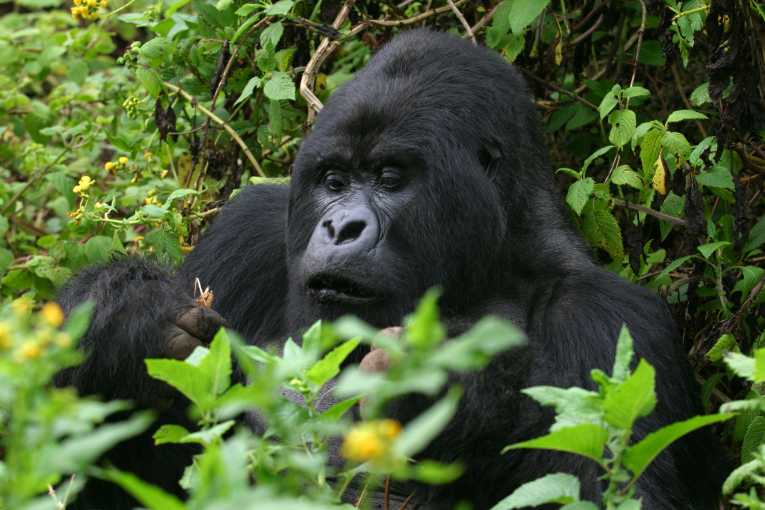Mountain gorillas face an invisible menace in their struggle for survival, it is reported today, as researchers confirm that two recent gorilla deaths were due to a virus passed on from man. The paper, published in the journal Emerging Infectious Diseases, found traces of a human pneumonia-type virus in the dead gorillas, from an infected group in Rwanda. With less than a thousand of our majestic great-ape cousins left, anything that adds to an already long list of threats - that includes habitat destruction, bush-meat traders and trophy hunters - is of major concern to conservationists.
It has been suspected for some time that there is the worrying potential for disease cross-over, from man to gorilla. We are very closely related to the great apes, and share around 98% of our DNA with the mountain gorilla. That makes a species leap for viruses more likely. But additionally, mountain gorillas are increasingly fenced in by swelling human numbers in the areas surrounding their parks. The scope for contact is therefore much greater - and sadly, gorilla tourism may widen that interaction further.
The case investigated by the paper - which included authors from the Mountain Gorilla Veterinary Project, the University of California, and Columbia University - related to an infection that spread through a gorilla group from Hirwa, in Rwanda, in 2009. The vets at the Mountain Gorilla Veterinary Project have seen recent increases in the level and severity of infections, in the gorillas they are monitoring.
Starting in 2008, a respiratory infection broke out in the Hirwa group, with worryingly familiar symptoms - runny eyes and noses, coughing and a distinct lack of energy. 11 of the 12 gorillas in the group were laid low, but things took a serious turn for a mother and her newborn infant. As the pneumonia took a hold, they sadly died.
The scientists took samples to try and nail the culprit. What they were looking for was the tell-tale biochemical signature, that could pin-point the source of the infection. And what they found was that both dead gorillas had been infected by a 'human metapneumovirus', which led to a secondary bacterial infection that killed the mother.
This discovery may well have implications for how human-gorilla interactions are managed in the future. Mike Cranfield, from the Mountain Gorilla Veterinary Project, said ''Because there are fewer than 800 living mountain gorillas, each individual is critically important to the survival of their species. But mountain gorillas are surrounded by people, and this discovery makes it clear that living in protected national parks is not a barrier to human diseases.''










